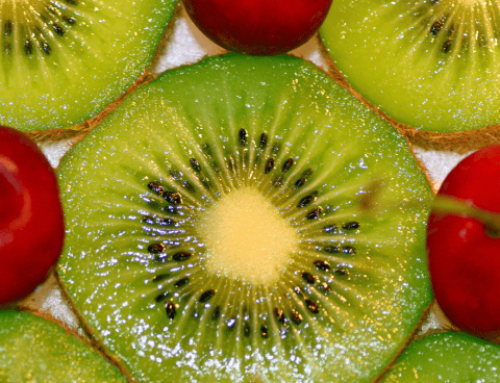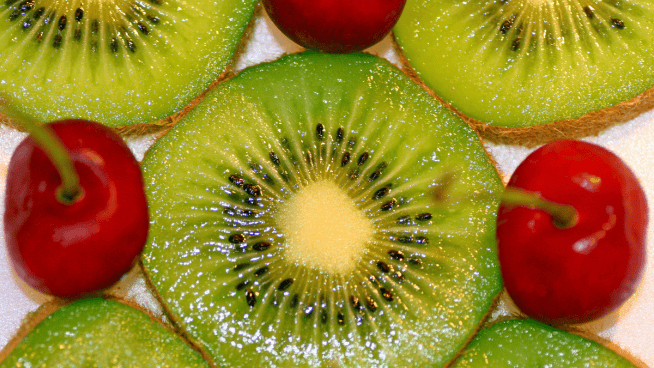Distinguishing Sound Nutrition Advice From Social Media Fads
In recent years, social media has become a primary source of information for many people, including those seeking advice on nutrition and health. However, with the rise of influencers and social media fads, it can be difficult to distinguish between credible nutrition advice and misinformation. In this article, we will discuss how to recognize social media fads and distinguish between misinformation and evidence-based nutrition advice.
Remember that Not Everything You Read is True
Social media is a platform that can be used to spread health and nutrition information, but it can also be used to spread false and misleading information. One of the most important things to keep in mind when using social media for nutrition advice is that not everything you read is true. Many influencers and celebrities promote fad diets and supplements that have not been proven effective or safe. These fads often promise quick and easy solutions to health problems, but they are rarely supported by scientific evidence. One study analyzed about 1.2 million tweets over 16 months and found that discourse on diet and nutrition was largely dominated by non-health professionals (1).
Learn to Distinguish Between Credible Advice & Misinformation
To distinguish between credible nutrition advice and misinformation, it is important to consider the source of the information. Registered dietitians, licensed nutritionists, and other qualified health professionals are the most reliable sources of nutrition advice. They have been trained in the science of nutrition and can provide evidence-based recommendations to help individuals achieve their health goals.
It is also important to be skeptical of nutrition claims that seem too good to be true. For example, if a product claims to cure a disease or provide rapid weight loss, it is likely a fad or a scam. These types of claims are often unsupported by scientific evidence and can be harmful to your health.
Another way to distinguish between credible nutrition advice and misinformation is to look for research studies supporting the claims. Scientific studies are conducted to determine the effectiveness of different nutrition interventions, and the results are often published in peer-reviewed journals. When evaluating nutrition advice, it is important to look for information supported by multiple high-quality studies.
There’s No One-Size-Fits-All
One of the most important things to keep in mind when seeking nutrition advice is that there is no one-size-fits-all approach to nutrition. Different people have different nutrient needs based on factors such as age, gender, activity level, and medical history. Any nutrition advice that does not take these factors into account is likely to be misleading.
Pay Attention to Your Own Body
In addition to considering the source of nutrition advice and evaluating scientific evidence, it is also important to pay attention to your own body. If a particular diet or supplement makes you feel unwell or does not produce the desired results, it may not be the right approach for you.
Conclusion
In conclusion, social media can be a valuable source of information on nutrition and health, but it is important to distinguish between credible nutrition advice and misinformation. When seeking nutrition advice, it is important to consider the source of the information, evaluate scientific evidence, and pay attention to your own body. By doing so, you can make informed decisions about your nutrition and health, and avoid falling victim to social media fads and misinformation.
References
- Lynn T, Rosati P, Leoni Santos G, Endo PT. Sorting the Healthy Diet Signal from the Social Media Expert Noise: Preliminary Evidence from the Healthy Diet Discourse on Twitter. Int J Environ Res Public Health. 2020 Nov 18;17(22):8557. doi: 10.3390/ijerph17228557. PMID: 33218105; PMCID: PMC7698912.
RECOMMENDED FOR YOU
MOST POPULAR
Distinguishing Sound Nutrition Advice From Social Media Fads
In recent years, social media has become a primary source of information for many people, including those seeking advice on nutrition and health. However, with the rise of influencers and social media fads, it can be difficult to distinguish between credible nutrition advice and misinformation. In this article, we will discuss how to recognize social media fads and distinguish between misinformation and evidence-based nutrition advice.
Remember that Not Everything You Read is True
Social media is a platform that can be used to spread health and nutrition information, but it can also be used to spread false and misleading information. One of the most important things to keep in mind when using social media for nutrition advice is that not everything you read is true. Many influencers and celebrities promote fad diets and supplements that have not been proven effective or safe. These fads often promise quick and easy solutions to health problems, but they are rarely supported by scientific evidence. One study analyzed about 1.2 million tweets over 16 months and found that discourse on diet and nutrition was largely dominated by non-health professionals (1).
Learn to Distinguish Between Credible Advice & Misinformation
To distinguish between credible nutrition advice and misinformation, it is important to consider the source of the information. Registered dietitians, licensed nutritionists, and other qualified health professionals are the most reliable sources of nutrition advice. They have been trained in the science of nutrition and can provide evidence-based recommendations to help individuals achieve their health goals.
It is also important to be skeptical of nutrition claims that seem too good to be true. For example, if a product claims to cure a disease or provide rapid weight loss, it is likely a fad or a scam. These types of claims are often unsupported by scientific evidence and can be harmful to your health.
Another way to distinguish between credible nutrition advice and misinformation is to look for research studies supporting the claims. Scientific studies are conducted to determine the effectiveness of different nutrition interventions, and the results are often published in peer-reviewed journals. When evaluating nutrition advice, it is important to look for information supported by multiple high-quality studies.
There’s No One-Size-Fits-All
One of the most important things to keep in mind when seeking nutrition advice is that there is no one-size-fits-all approach to nutrition. Different people have different nutrient needs based on factors such as age, gender, activity level, and medical history. Any nutrition advice that does not take these factors into account is likely to be misleading.
Pay Attention to Your Own Body
In addition to considering the source of nutrition advice and evaluating scientific evidence, it is also important to pay attention to your own body. If a particular diet or supplement makes you feel unwell or does not produce the desired results, it may not be the right approach for you.
Conclusion
In conclusion, social media can be a valuable source of information on nutrition and health, but it is important to distinguish between credible nutrition advice and misinformation. When seeking nutrition advice, it is important to consider the source of the information, evaluate scientific evidence, and pay attention to your own body. By doing so, you can make informed decisions about your nutrition and health, and avoid falling victim to social media fads and misinformation.
References
- Lynn T, Rosati P, Leoni Santos G, Endo PT. Sorting the Healthy Diet Signal from the Social Media Expert Noise: Preliminary Evidence from the Healthy Diet Discourse on Twitter. Int J Environ Res Public Health. 2020 Nov 18;17(22):8557. doi: 10.3390/ijerph17228557. PMID: 33218105; PMCID: PMC7698912.











